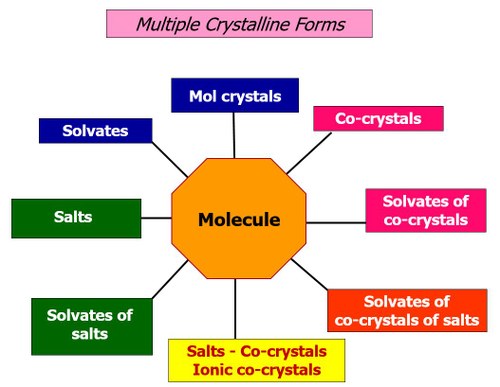
Design and synthesis of molecular solid state structures with desired properties is a goal of crystal engineering and a subject of significant interest for pharmaceutical companies, especially when dealing with APIs, which are often characterized by limited bioavailability. A thorough understanding of the relevant non-covalent interactions at work between molecules and ions in pure molecular solids, solvates, co-crystals and ionic co-crystals of APIs allows, at least in principle, to modify the physical and chemical properties of a drug. When ionizable groups are present, salt formation is the method most commonly employed to improve the solubility of a poorly soluble API; inclusion of solvent, especially water, in the crystalline edifice, often accompanies the salt formation, but the phenomenon is more general and not limited to salts. A control on the crystal forms resulting from a manufacturing process is also crucial, as final properties of an API may dramatically and unexpectedly change upon solvent loss or addition, or due to appearance of polymorphic modifications.
Prof. Fabrizia Grepioni, Prof. Dario Braga, Prof. Lucia Maini